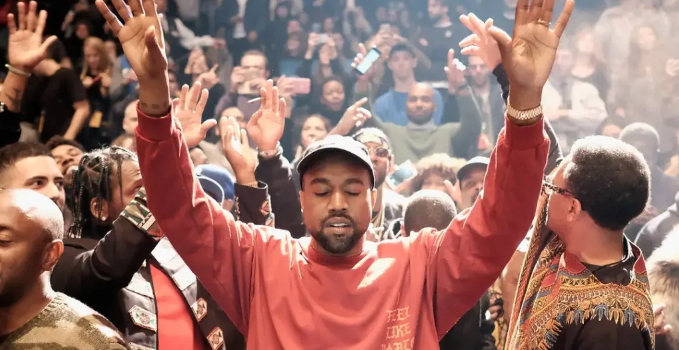
Reflecting on how Kanye West’s transformation challenges the ideals that once inspired me as a Black man
Kanye West’s recent behaviour, including his controversial Instagram posts involving his divorce and fatherhood struggles, has once again thrust him into the limelight. While I can still empathise with his personal turmoil, as a 35-year-old Black man, I can’t help but feel that he’s become everything he once warned me and my peers about.
Kanye’s latest antics, which included tagging figures such as Jeff Bezos, Barack Obama, and Kamala Harris in now-deleted posts about his dispute with Kim Kardashian, are far removed from the rapper I once admired. I recall a time when Kanye’s music defined a cultural shift, a time when my friends and I would trade FUBU for polo shirts and big watches for smaller ones, inspired by his sound and vision.
Back in 2004, Kanye’s debut album, The College Dropout, was revolutionary. It wasn’t just the music, but the persona he crafted — one that challenged societal expectations and encouraged us to reject stereotypes. He became a symbol of empowerment, influencing artists like Kendrick Lamar and Chance the Rapper, and even earning accolades from legends like Paul McCartney, who called him a “monster” of talent.
I also remember his pivotal moment during a concert for Hurricane Relief in 2005, when he boldly stated, “George Bush doesn’t care about Black people.” At the time, his words resonated with me deeply, particularly as a Navy serviceman hearing about the failures during Hurricane Katrina. Kanye’s bravery in using his platform to challenge injustice made me feel seen.
But as the years have passed, Kanye’s actions have become increasingly difficult to understand. His outspoken support for Donald Trump, a figure who represents the very systems he once criticised, is troubling. It’s hard to reconcile the man who once rapped about systemic inequality with the one who now seems to embrace the very forces he once denounced.
Kanye’s personal contradictions extend beyond politics. In 2023, a class-action lawsuit was filed against him by former employees, alleging mistreatment and poor working conditions, which is a far cry from the rebellious artist who once spoke out against corporate exploitation in the music industry. And yet, despite all this, I still hold respect for some aspects of his legacy. His contributions to mental health awareness and his charitable work, like his donations to a Chicago toy drive, remind me of the potential for good within him.
However, his recent behaviour leaves me questioning the impact of his actions on the younger generation, especially Black children who look up to him. For years, I’ve watched his music become increasingly erratic and unfocused. My Beautiful Dark Twisted Fantasy remains his crowning achievement, but after 2010, his work started to decline. Kanye often blames his personal life for his creative struggles, but it’s clear that he has moved far from the ideals that once made him a role model.
As I reflect on the Kanye West I once idolised, it’s hard to ignore how far he’s strayed from the messages of empowerment and self-love that shaped my youth. As a Black man, the man he has become is a stark contrast to the one who once inspired me. The College Dropout holds a different meaning for me now, and I can’t help but feel that the Kanye West I once admired would be deeply embarrassed by who he has become. If I had encountered this version of Kanye 18 years ago, I fear the impact would have been far more damaging.












